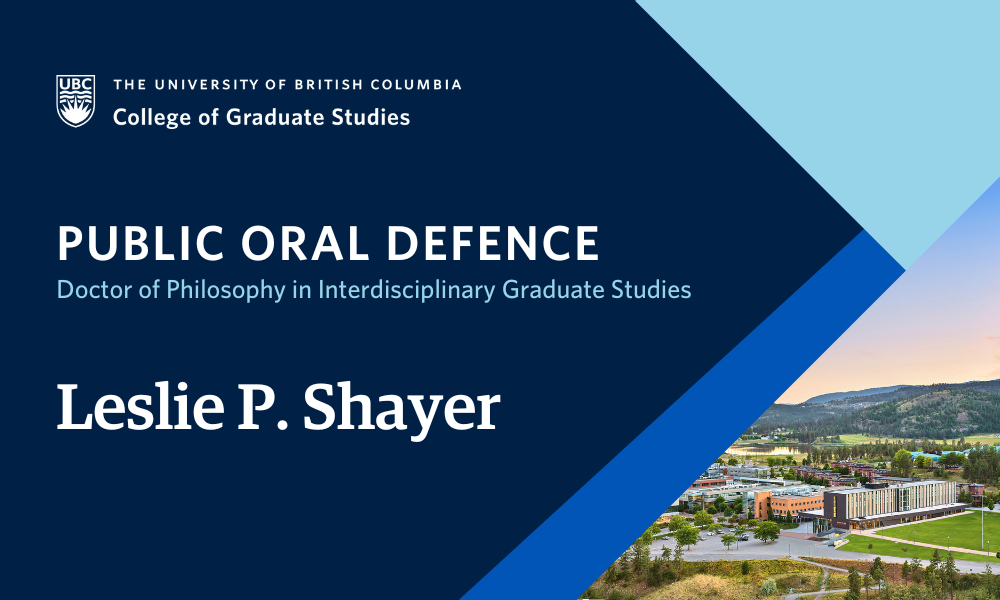
- This event has passed.
Dissertation Defence: Mathematics Anxiety and Contemplative Pedagogy at the Post-Secondary Level
June 20 at 3:00 pm - 7:00 pm

Leslie P. Shayer, supervised by Dr. Karen Ragoonaden, will defend their dissertation titled “Mathematics Anxiety and Contemplative Pedagogy at the Post-Secondary Level” in partial fulfillment of the requirements for the degree of Doctor of Philosophy in Interdisciplinary Graduate Studies.
An abstract for Leslie P. Shayer’s dissertation is included below.
Examinations are open to all members of the campus community as well as the general public. Registration is not required for in person defences.
ABSTRACT
Mathematics has long been known as a gatekeeper subject in post-secondary programs, erecting barriers to mathematical success and career. Bleak attitudes surrounding mathematics as well as math anxiety, or negative emotional or physiological responses to mathematics content, compound this subject’s challenges, diminishing life chances for many post-secondary students. The result is not only the spread of negative mathematics attitudes, but also poor performance in mathematics as well as avoidance of mathematics, including STEM, subjects and careers.
Using a mixed method design including a two-stage data collection process, this study investigated how contemplative pedagogy could support students in post-secondary mandatory mathematics courses. Two sections of the same course formed the sample, with one being the control and the other, the intervention group. The latter group incorporated evidenced-based practices from contemplative pedagogy after the first course test. Qualitative datasets were formed by researcher field notes, Math Origin Stories, and individual semi-structured interviews, while the quantitative ones comprised of pre- and post-test questionnaires (the Five Facet Mindfulness Questionnaire and the Math Anxiety Rating Scale) as well as course grades. After triangulating the themes emanating from the use of grounded theory to the qualitative data with the conclusions drawn from statistical data analyses applied to the quantitative data, positive results emerged. The use of contemplative pedagogy was a viable intervention to reduce math anxiety, diminish math avoidance, improve math attitudes, and increase math performance. Results further indicated that contemplative pedagogy fostered the building of community in the classroom and led to positive transformations by those in the intervention group.
The contemplative pedagogy included in this research shows promising results, suggesting that this intervention may be effective as student supports as they confront some of the negative attitudes and anxiety inherent to mathematics content or STEM-related fields. While supporting overall student well-being, the contemplation developed in such a program
can also act as an important component of the classroom environment. This could, in turn, ensure the emergence of a culture of acceptance and belonging for students of all math proficiency levels and further foster equity in the classroom.C